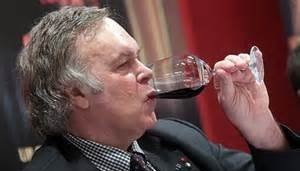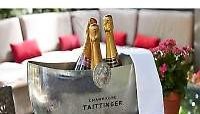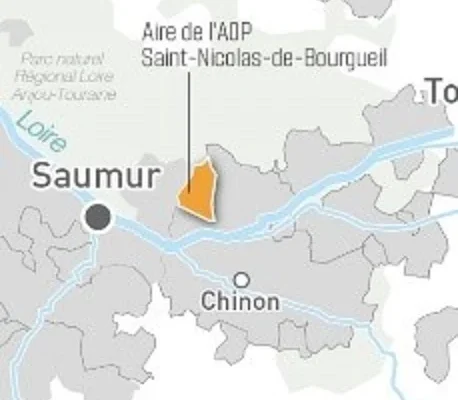I’ve always followed the rule that anything worth doing is worth doing excessively.” – Robert Parker
The Time before Parker
The wine industry as we currently know it did not exist when Robert Parker entered it in 1967. Although he was a history major and a law school graduate and practiced as an attorney for almost 11 years, his heart belonged to wine. Since the day he discovered that his sense of taste and smell was more acute than almost anyone else – he has had one mission: to provide meaningful, comprehensive, independent, accurate, critical commentaries and opinions on fine wines and fine wine values.
Innovator
Why did Parker start writing about wine in 1975, developing his own, independent consumer’s guide? Because no one else was doing it! He wanted reliable information on wine quality and data and for three years he searched and evaluated ways to share his interests, enthusiasm and passion for wines. Finally, in 1978 he found the format and published the first issue of The Wine Advocate (TWA). His publication was the first to adopt the 50-100 point scale and use it as a parallel to the American educational grading system.
The first issue was sent for free to mailing lists he purchased from major wine retailers and ended up with slightly less than 600 subscribers; today, The Wine Advocate has over 50,000 followers with representatives from every state in the USA and 37 international countries (including France, England, Switzerland, Japan, Taiwan, Singapore, Russia, Mexico, Brazil and China).
Parker established his high-ranking position in the industry when he predicted the superiority and quality of the 1982 vintage of Bordeaux wine. His validation raised interest from American wine buyers to purchase wine futures of this vintage, before it was released to the public. This radically increased the price for the 1982 Bordeaux.
Applauded by French, Italian and Spanish Governments
In 1999, President Jacques Chirac signed a decree making Parker a Chevalier dan l’Ordre de la Legion d’Honneur. Chirac decorated Parker at a ceremony held at the Elysee Palace on June 22 and said that, “Robert Parker is the most followed and influential critic of French wines in the world, something I (President Chirac) witnessed recently when choosing wine for President Clinton, who automatically referred to Robert Parker as his reference for making a proper wine buying decision.” In 2005, Chirac promoted Parker to an “Officer” in France’s Legion of Honor, recognizing the extraordinary contribution he made to the quality of wine writing and consumer education around the world. In 1993, President Francois Mitterrand made Parker a Chevalier dans l’Ordre National du Merite.
In 2002 Parker became a Commendatore (Commander) in Italy’s National Order of Merit, the country’s highest honor. The recognition was made by Prime Minister Berlusconi and President Ciampi for Parkers’ contributions to the recognition of quality Italian wines and his educational efforts about Italian wines. Parker is the first wine writer /critic to receive this honor.
In 2011 Parker became the first wine writer/critic to receive the Grand Cross of the Order of Civil Merit, the Gran Cruz de la Orden del Merito Civil, Spain’s highest civilian honor. The presentation was made by His Majesty King Juan Carlos and the government of Spain.
Extraordinary Contributions
Parker has written 14 books on wine and they have become best sellers in the US as well as France, Japan, Germany, Sweden, Poland, China, Spain, South Korea and Russia. In 2004 the Culinary Institute of America created a legacy endowment for wine education in his name. In 2013 he became the first wine critic inducted into the Culinary Institute of America’s Vintners Hall of Fame in Napa Valley, California.
To this day, wine industry experts find The Wine Advocate to be the most prominent publication in the wine industry and a significant influence on consumers as well as industry professionals.
Parker has even managed to create an investment niche for wine which is now viewed as an investable asset. Wines receiving 100 points (for example) are bought or sold – to replace or enhance a portfolio of 90 points. Brokers and collectors can thank The Wine Advocate for the opportunity to trade fine Bordeaux on electronic exchanges in the same way they trade pork bellies and gold. The prices are largely governed by Parkers’ ratings.
Not An Easy Job
Parker samples 10,000 wines a year. He has been bitten by a dog, sued, vilified, and disrespected by wine growers, wine bloggers, wine investors, and wine sellers; yet without him, the wine industry may not have become such an interestingly competitive business. He is noted as commenting that – if he is changing wine history, as people claim, it is purely through the expression of his taste. Parker maintains that when he began The Wine Advocate as a newsletter he was seeking independence…although he does accept hospitality, “…such as lunch at a Bordeaux chateau-as it’s also a learning opportunity. But I wouldn’t want to make a habit of it.” Neil Bennett (www.cityam.com) finds Parker, “…ever the ordinary man with the extraordinary palate (2015, April 2).”
Many of the French elite have found Parker offensive because he has managed to “suggest” that the brands and estates they developed and nurtured over the centuries may not be as terrific as their public relations image suggests.
Greatly influenced by Ralph Nader, Parker has written in The Role of the Wine Critic, “I was [in 1978], and remain today, significantly influenced by the independent philosophy of consumer advocate Ralph Nader. Moreover, I was marked by the indelible impression left by my law school professors, who pounded into their students’ heads in the post-Watergate era a broad definition of conflict of interest.”
Moving On
According to a December 12, 2012 report in winesearcher.com, Robert Parker sold the majority shares of The Wine Advocate to a Singapore-based company for $15 million. From this nation-state the operation will be directed by Editor-in-Chief Lisa Perrotti-Brown MW and three new investors. The task of tasting Bordeaux enprimeurs (young wine still in the barrel) has been taken over by a colleague, Neal Martin.
The company will continue to produce wine education conferences and Matter of Taste events domestically and internationally. Matter of Taste programs offer fine wine tastings exclusively for eRobertParker.com subscribers and their guests, feature wines rated RP 90 points and higher by TWA and are handpicked by its world-renowned team of experts. An addition to the team of wine reviewers is Liwen Hao who has been hired to be the new Asian Wine Reviewer. From his Shanghai base Hao is responsible for reviewing Asia’s best wines from China, India and Japan. Hao is also supervising the translation of parts of RobertParker.com into Chinese.
New Website
TWA has developed a new website that is currently available to subscribers at beta.robertparker.com. The new website offers enriched search capabilities giving members the opportunity to search a database of more than 300,000 tasting notes through nine filter criteria (i.e., color, sweetness, type, variety, rating, author, price and locations). Articles are searchable and the wine information page includes bottle shots and vintage charts.
The Hedonist’s Gazette offers more flexible search options and includes restaurants, destinations, recommendations and wines.
Krug Celebration

To announce the new website and the organizations signature wine/dine tour, Matter of Taste, a press conference was recently held at the elegant Mandarin Oriental Hotel in Manhattan where Krug was generously made available to attendees.
You do not need to have the gourmet palate of Robert Parker to know that sipping Krug Grande Cuvee Brut Champagne creates magical and memorable moments by stimulating the pleasure sensors in the brain. I suspect that I could be stuck in a subway tunnel during rush hour on the E train in the summer without air conditioning and, if I had a glass of Krug, I would not give a damn.
Krug Grande Cuvee is a blend of 120+ wines from 10+ different vintages (up to 15 years in age) and 3 grape varieties (Pinot Noir, Chardonnay and Pinot Meunier) from different vineyards and each year is it recreated. It takes over 20 years to fashion a bottle of Krug Grande Cuvee, including at least 6 years in the bottle in Krug cellars.
To the eye it presents a deep golden color and fine, spirited bubbles that are sexy and seductive – raising expectations as to what they will feel and taste like. To the nose – an aroma of apples, bananas, lemons with suggestions of flowers, marzipan and ginger. On the tongue the tender bubbles gently lead a path to the palate delivering hints of lemon and grapefruit, apples and bananas. There is a very happy ending that conveys a slightly fruit forward yet sour/sweet finish tempered by honey and almonds.
The House of Krug Champagne was started by Joseph Krug in 1843 in Reims, the center of France’s Champagne region. Krug is one of the most famous Champagnes in the world. The major shares of the company are owned by the international conglomerate of LVMH Moet Hennessy/Louis Vuitton SA and the portfolio includes Moet & Chandon, Veuve Clicquot, Chateau d’Yquem and Ruinart. The Krug family continues to be involved in the enterprise but does not manage the day-to-day operation.
Just A Matter of Taste
The special event, A Matter of Taste, included Master Classes that reviewed and discussed selections of unique wines. Estate Director Don Weaver and winemaker Cory Empting hosted a seminar on Harlan Estate, referred to as California’s First Growth. Another Master Class featured Lokoya wines that focused on vintages from the winery’s mountain appellations and was hosted by Lokoya winemaker Chris Carpenter.
A Century of Colheitas, The Jewel of Ports, was designed for vintage Port followers. Mark Squires led guests through a century of his personal selection of Coheitas that included Taylor Fradgate & Yeatman’s 1863.
The Walkabout, held in the hotel’s Grand Ballroom, included Chateau Pontet-Canet (Pauillac), Chateau Haut Bailly (Pessac-Leognan), Verite (California, Cayuse (Washington), Clarenden Hills (Australia), Cullen (Australia), Greywacke (NZ), Niepoort (Portugal), Fontodi (Tuscany), JJ Prim (Germany) and March Molitor (Germany), among many others.
Rain Drops or Hurricanes

The wine industry evolves and tastes change; fortunately, people continue to drink wine. Some wine consumers will eagerly read every magazine, ezine and book about wines – never feeling adequately educated to speak authoritatively about the subject and shy about expressing their taste experiences, while others will boldly walk into a wine store, saunter over to the zones marked France or Italy or Portugal and randomly select a bottle for dinner or a gift. This group will develop their own storehouse of wine knowledge, confidently sharing their thoughts and ideas on Facebook, Instagram and Twitter. The final outcome is likely to be more and better wines. Competition will ultimately determine who wins and who does not.
This copyright article may not be reproduced without written permission from the author. elinor@tourismexecutives.com




